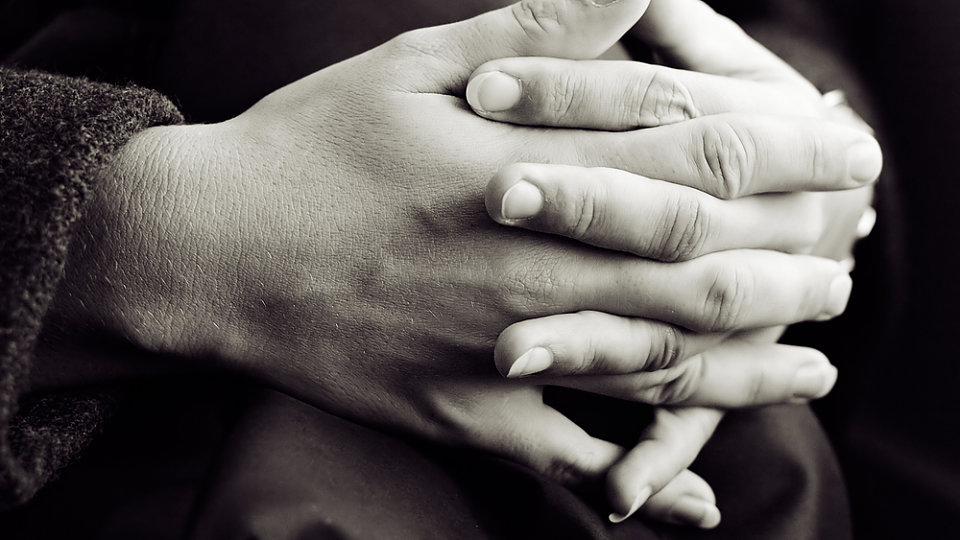Who Needs Forgiveness?
I’m sharing excerpts from my new book, Creed: What Christians Believe and Why, on the blog in these next few weeks as we approach the Lenten season. Today, I’m including a portion from Chapter Five, “The Forgivenss of Sins.” Click here to read last week’s post, which featured an excerpt from Chapter Four. Belief in the forgiveness of sins is only good news if we first understand that we need forgiveness, and to make sense of that understanding we must talk about sin. The primary word for sin in the New Testament is hamartia, a term used by archers that meant “to miss the mark.” This was a great word to use in illustrating what sin is, particularly in a day when people hunted with bows and arrows. Just as an archer’s arrow might miss the intended target, we as human beings miss the target in our thoughts, words, and deeds. The word points to a fundamental existential truth: there is an ideal we’re meant to live up to as human beings—holiness, or sanctification—but we all fall short of this ideal, mark, or target. The theological word for missing the mark is sin, and because we daily miss the mark—saying, thinking, or doing things we should not have done, or failing to say, think, or do things we should have done—we find ourselves in need of forgiveness. What does “missing the mark” look like? The fourth-century desert father Evagrius Ponticus is credited with outlining a list of foundational or cardinal sins from which all other sins arise. The list became known in Christianity as the “seven deadly sins.” I find the list helpful in examining my own life to see where I miss the mark. There are variations in the lists of these deadly sins, depending upon how certain Latin words are understood and translated, but here is one standard list: · lust · gluttony · greed · sloth · anger · envy · pride Most of these seven deadly sins are pretty self-explanatory, though a word about sloth might be helpful. I understand sloth to be not only avoidance of doing what we’re meant to do, but indifference to evil or the suffering of others. Going back to the list, which of us hasn’t struggled with these sins? Some are a daily struggle for me. Another way to look at “missing the mark” is to think of the virtues our lives are meant to be defined by. There are a variety of lists describing such virtues. As noted earlier, one such list is Paul’s “fruit of the Spirit,” in which he paints a picture of the marks which God intends to define our lives, including “love, joy, peace, patience, kindness, goodness, faithfulness, gentleness, and self-control” (Galatians 5:22-23). With the Spirit’s help, we hope to be defined by these virtues, but looking over the list, it is easy for most of us to see that we miss the mark. A traditional prayer of confession used in Anglican and Methodist settings captures the variety of ways we sin and helps us understand our need for forgiveness: Most merciful God, we confess that we have sinned against you in thought, word, and deed, by what we have done, and by what we have left undone. We have not loved you with our whole heart; we have not loved our neighbors as ourselves. We are truly sorry and we humbly repent. To be clear, we sin by things we’ve thought, said, and done (sins of commission), but we can also sin by failing to think, say, or do things we should have done (sins of omission). Either way, sin is a failure to be or do what God intends for us as human beings. It is a missing of the mark. Sin can enslave us. It can rob us of joy. The lure of sin over-promises and under-delivers. I’ve seen up close the impact of surrendering to lust, gluttony, greed, sloth, anger, envy, and pride. We see the impact of sin every day on the evening news. In the last century, hundreds of millions of people died needlessly due to war, greed, ethnic violence, terrorism, unclean water, lack of food and health care, and more—and the underlying causes of all of these things can be summarized by one word: sin. It’s easy to look at the categories of sin I’ve just mentioned and think they apply to the sins of others, while not seeing our own struggle with sin. That’s where Alexandr Solzhenitsyn’s words offer an important truth: If only there were evil people somewhere insidiously committing evil deeds, and it were necessary only to separate them from the rest of us and destroy them. But the line dividing good and evil cuts through the heart of every human being. The Apostle Paul offers this realistic assessment of the human condition when he writes, “All have sinned and fall short of God’s glory” (Romans 3:23). We’ve all treated others poorly, been self-absorbed, and failed to do justice and practice loving-kindness. We’ve all missed the mark. We all need forgiveness. This is just a brief excerpt from Chapter Five of my new book, Creed: What Christians Believe and Why. In the rest of the chapter I consider other meanings of the word, sin, in the New Testament and then focus on the radical nature of God’s forgiveness. If you would like to know more about the book or the children, youth or adult small group study resources based upon it, click here; or click here to view the promo videos (scroll to the bottom of the page and click on the "Videos" tab).




